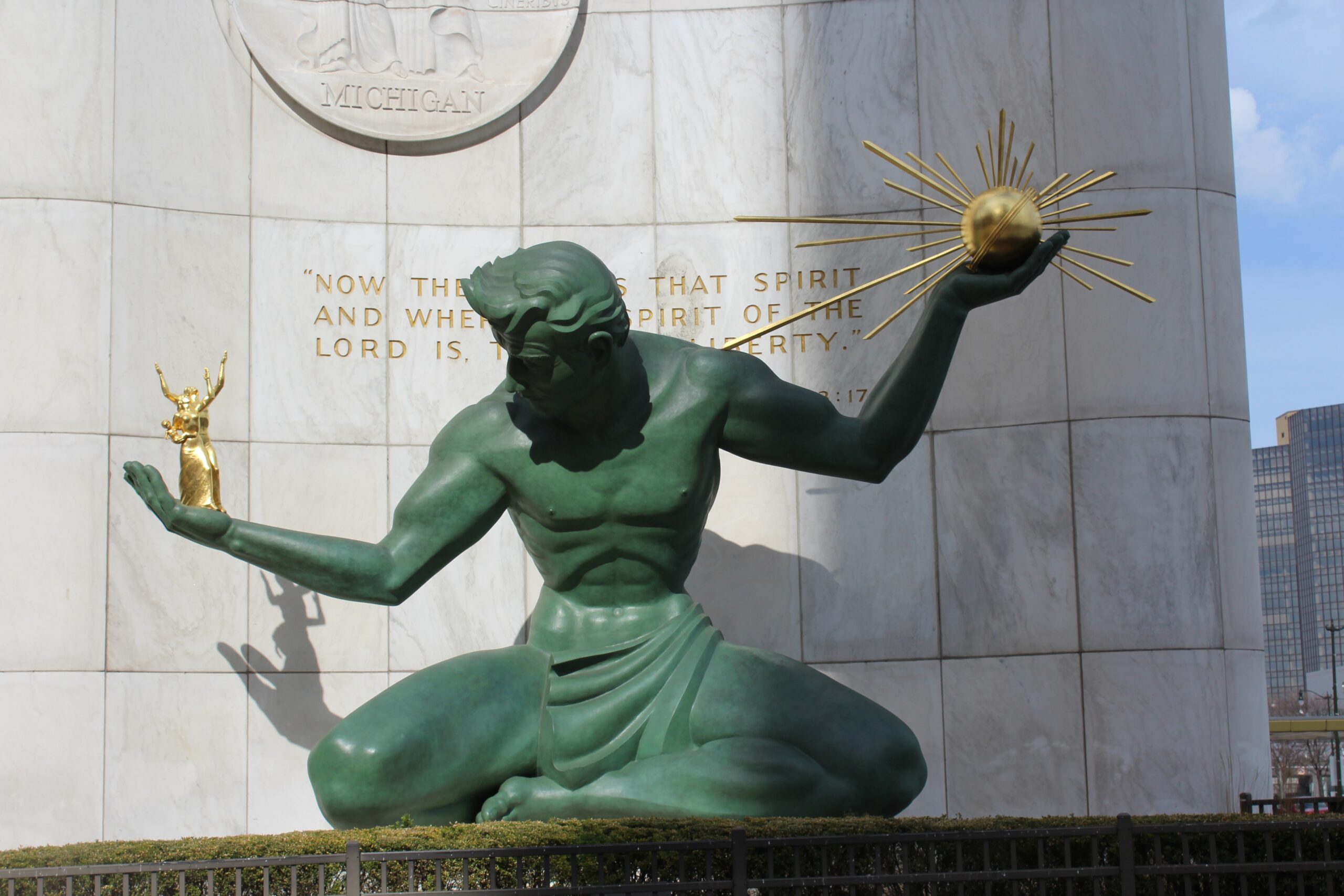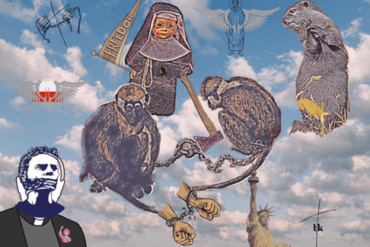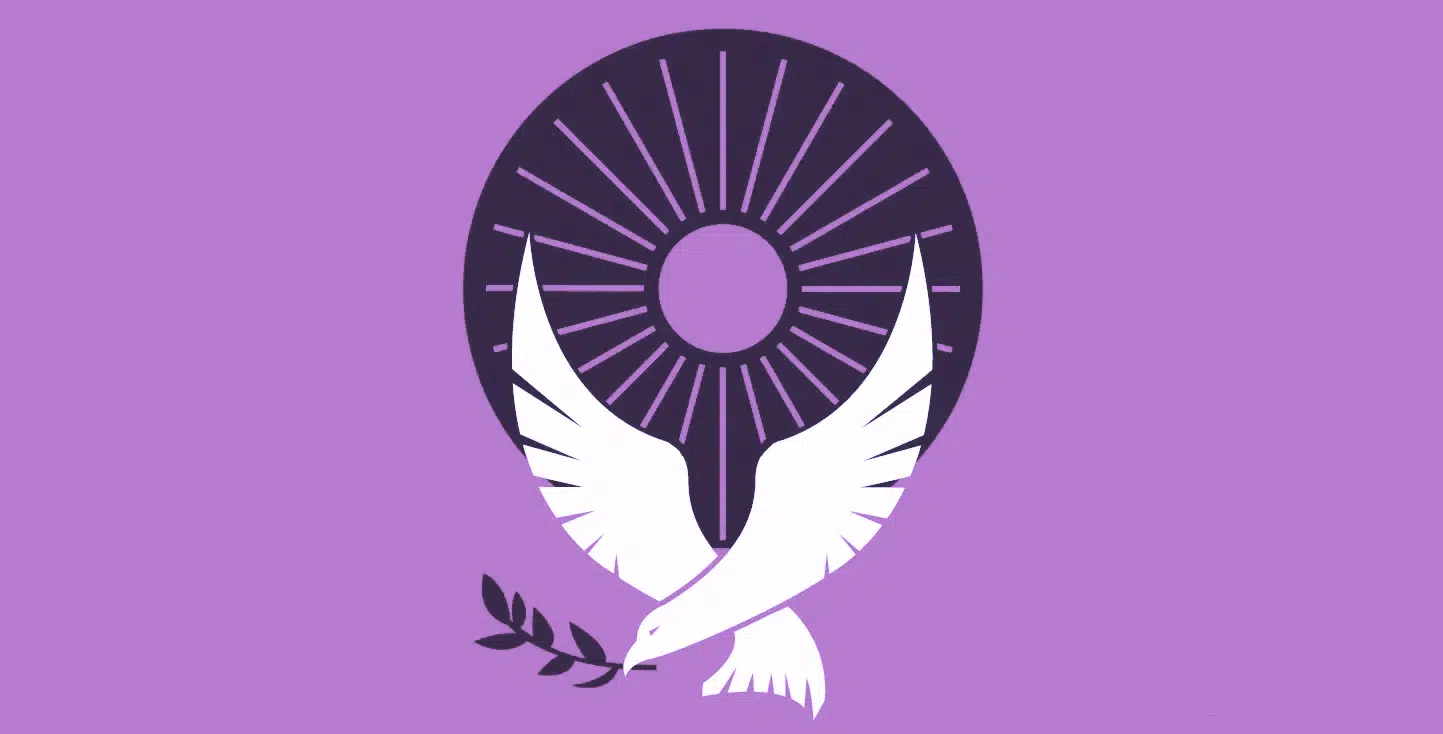If abortion can be banned, largely due to Christian beliefs, what is to stop an overturning of the legalization of gay marriage or the disestablishment of “Don’t Ask, Don’t Tell?” If The Handmaid’s Tale taught me anything, it is to never believe that I am truly safe, untouchable.

As I walk with June through Gilead, I never envisioned my journey to begin by talking about something that is happening to the United States of America: the fetal heartbeat bill that has taken effect in Texas. I believed that I would begin this stroll by looking at the ways June begins to find her own identity in the beginning episodes of the Hulu adaptation, using Ofglen as a means of learning about Mayday and her potential escape into Canada. However, I must instead talk about the dystopian future created by Margaret Atwood that is in some ways coming to fruition.
In Gilead, Atwood creates one of the most sexually repressive environments that can be found in literature or film. The handmaids’ situation alone proves that sex is something to be controlled in the Gileadean state. Pregnancy, even more so, is seen as something that must be monitored, protected, and celebrated. One of the most talked about crimes in the novel and in the show is the attacks that occur regularly from jealous wives, jealous handmaids perpetrated on pregnant women, killing the fetus. The punishment for this crime is death, without exception. This is one of only two mentions of abortion, with the second being doctors hung on the wall for providing abortions within Gilead.
What is most disheartening and most terrifying about the relationship between doctors hung on a wall in Gilead and doctors sued and potentially incarcerated in Texas is that the informant of the crime is often, in both the fictional Gilead and the real Texas, a woman’s neighbor. The powers that be in Gilead created the handmaid partner system for two reasons: to protect the women from attackers and to protect the women from their own crimes. When the handmaids say to each other “Under His Eye,” they are not simply following protocol. The phrase is a reminder that they are living in a world where their partner can report a crime, be it a small transgression like reading resulting in the loss of a finger or a larger transgression like abortion, which would mean death.
Atwood has gone on record many times stating that when Trump was elected president in 2016, she became very interested in the fall of Gilead as mentioned in the epilogue of The Handmaid’s Tale. She wanted to show that evil does not win, that sexual repression is not something that can be held as the status quo forever.
I have looked at and read multiple news articles on the fetal heartbeat abortion law that has been passed in Texas and, by far, the most terrifying part of the bill is that anyone can report the abortion, so long as the abortion falls within the very stringent boundaries of after the first six weeks and there is a fetal heartbeat. People that can be sued for the loss of the child include, the pregnant woman, the doctor, a cab driver who drove the woman to the clinic, and anyone who was related to the abortion. Women in Texas are truly “Under His Eye,” only it is not partnered handmaids or Eyes watching them, it is every single individual in the state.
Margaret Atwood has been called a prophetess for many years, with some of her more dystopian works having elements that appear in the real world: the loss of female rights from The Handmaid’s Tale and the development of bioengineered weapons as seen in Oryx and Crake. What is sad is that her writing is meant to be a warning, not a guide. Atwood has gone on record many times stating that when Trump was elected president in 2016, she became very interested in the fall of Gilead as mentioned in the epilogue of The Handmaid’s Tale. She wanted to show that evil does not win, that sexual repression is not something that can be held as the status quo forever. I truly hope that this country sees the movement forward as seen in The Testaments, but until it does, may there be favor with every pregnant woman in need in Texas.
To close, many reading this are likely wondering how this is autoethnographic. I am a gay man who lives in South Carolina. I do not want children, and should I ever decide otherwise, an abortion will be off the table. Realistically speaking, abortion is not an issue I will ever have any personal experience with. However, the precedent set by the Texan fetal heartbeat abortion ban is one that should terrify every woman and minority group in America. If a law can be passed to ban abortion in one state, what stops it from being passed in others? If abortion can be banned, largely due to Christian beliefs, what is to stop an overturning of the legalization of gay marriage or the disestablishment of “Don’t Ask, Don’t Tell?” If The Handmaid’s Tale taught me anything, it is to never believe that I am truly safe, untouchable. Things can change for the worse in an instant, and it only takes one politician, one movement, and everything that one takes for granted, everything I take for granted, can go up in smoke.
Please, send your thoughts and prayers, your support to the women of Texas. May the women of this near-Gilead find comfort and peace, and may the resistance be as strong as the establishment.
Jay
Featured image by Icewizie for Wikimedia; logo created by Billy Fasig









